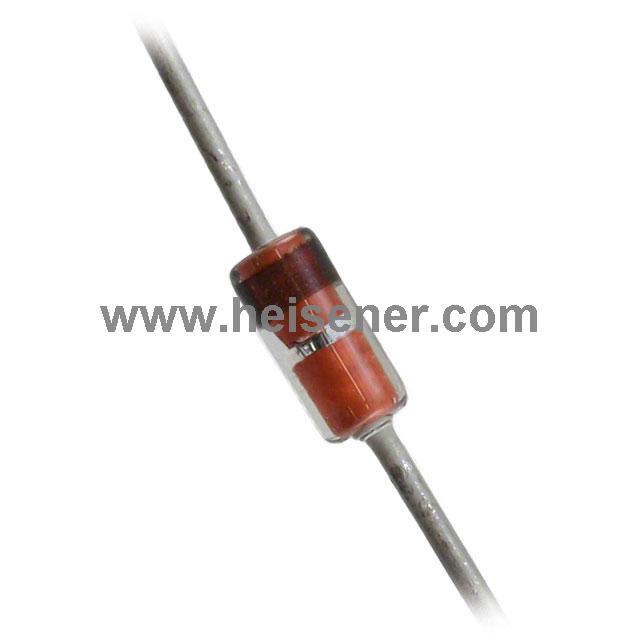
DB3 Description
The DB3 functions as a trigger diode with a fixed voltage reference, ideal for use in conjunction with TRIACs in simplified gate control circuits or as a starting component in fluorescent lamp ballasts. Housed in a compact SOT23-3L surface mount package, these devices are well-suited for SMD-based designs, facilitating automated manufacturing processes.
DB3 Symbol

DB3 Footprint

DB3 3D Model

DB3 Circuit

The DB3 voltage-current characteristic curve illustrates the relationship between the voltage applied across the diode and the resulting current. In the curve, the forward voltage is plotted on the horizontal axis, while the forward current is shown on the vertical axis. Initially, as the voltage increases from zero, the current remains negligible due to the diode's high resistance in the non-conducting state.
Once the voltage reaches the diode's trigger voltage, there is a sharp increase in current, indicating the diode's transition from its off-state to conducting. This transition is characterized by a steep rise in current with only a small increase in voltage, demonstrating the diode's low forward voltage drop in the conducting state. The curve typically shows a distinct knee or breakover point where the diode turns on, followed by a region of relatively stable, high current flow.

In operation, the power supply is connected across the diode with the resistor in series. As the voltage from the power supply is gradually increased, the diode remains off until the applied voltage reaches its trigger threshold. At this point, the diode switches from its high-resistance (non-conducting) state to a low-resistance (conducting) state, allowing current to flow through the circuit.

The rise time measurement of the DB3 diode assesses the speed at which the diode transitions from its off-state to its on-state when triggered.
In the measurement setup, a test circuit applies a voltage to the DB3 diode through a controlled power source, with an oscilloscope or similar high-speed measurement instrument used to capture the diode's response. The rise time is defined as the interval between the initial application of the trigger voltage and the point where the diode reaches its specified conducting state.
DB3 Specification
| Parameter | Value |
| Part Number | DB3 |
| Type | Trigger Diode |
| Package | DO-35 |
| Breakdown Voltage (V_BR) | 30 V |
| Voltage - Continuity | 28-36 V |
| Hold Current (I_H) | 10-20 mA |
| Peak Pulse Current (I_PP) | 1-2 A |
| Current - Peak Output | 2 A |
| Power Dissipation (P_D) | 150 mW |
| Operating Temperature Range | -40°C- 125°C |
| Repetitive Peak Off-State Voltage | 30 V |
| Capacitance (C) | 10 pF |
DB3 Features
Provides a stable voltage reference
Easily integrates with triacs for straightforward gate control circuits
It offers a defined breakdown voltage and trigger characteristics.
VBO: 32 V and 40 V
Low breakover current
Breakover voltage symmetry : 3V
ECOPACK®2 compliant
DB3 Applications
Triac Gate Control
Fluorescent Lamp Ballasts
Overvoltage Protection
Light Dimmer Circuits
Phase Control
Timing Circuits
Solid-State Relays
DB3 Package
The DB3 trigger diode is housed in a DO-35 package, which is a widely used small-outline package for surface-mount and through-hole applications. The DO-35 package features a cylindrical, glass encapsulation with two leads extending from opposite ends, making it compact and easy to integrate into various electronic circuits. This package provides effective protection for the diode while ensuring good thermal performance and mechanical durability.


FAQs
What testing methods are used for the DB3 diode?
Testing methods for the DB3 diode include measuring the trigger voltage, rise time, and current-voltage characteristics. These
What is the typical rise time of the DB3 diode?
The rise time of the DB3 diode refers to the time it takes for the diode to switch from off to on.
How does the DB3 diode compare to other trigger diodes?
Compared to other trigger diodes, the DB3 has more specific trigger voltage characteristics, so it is suitable for applications requiring small size and precise triggering.